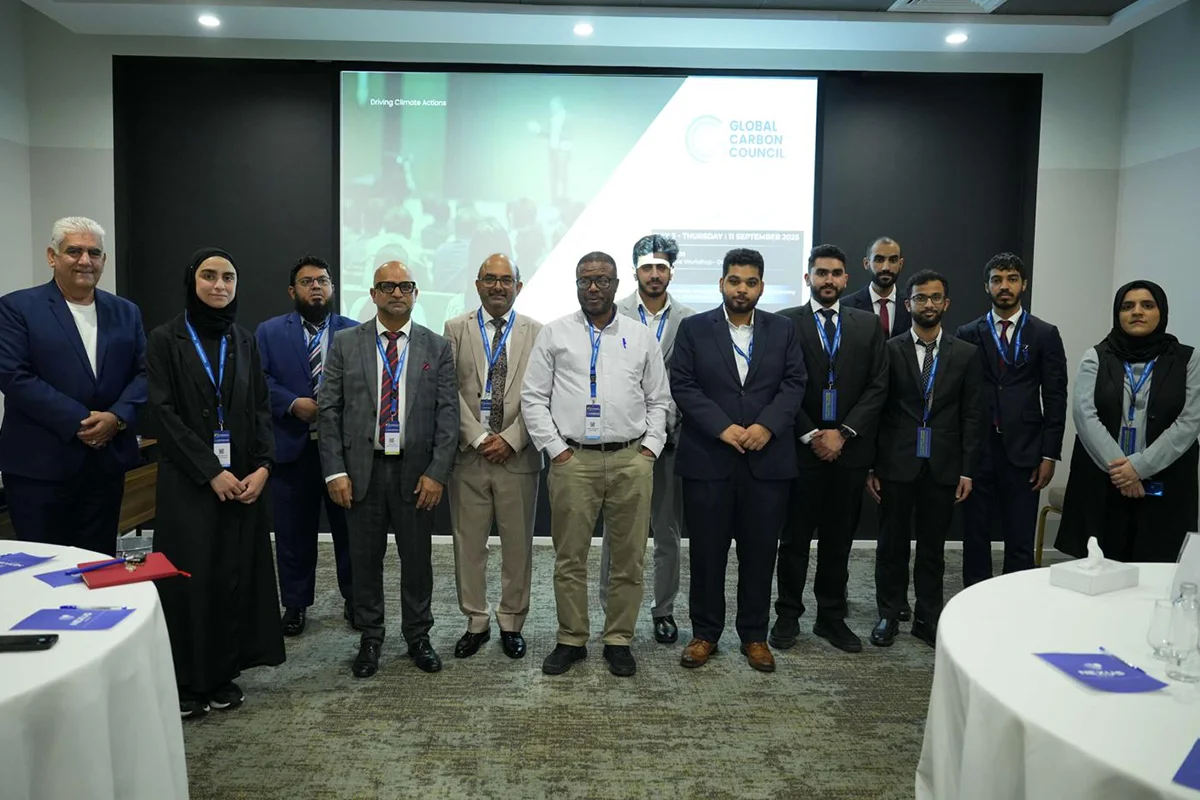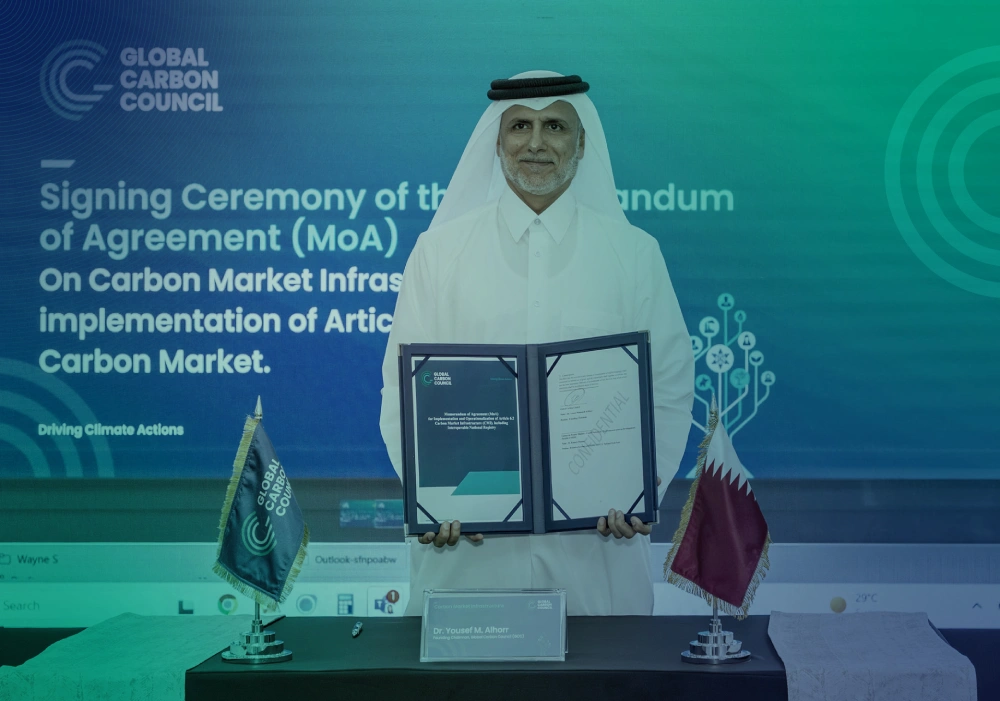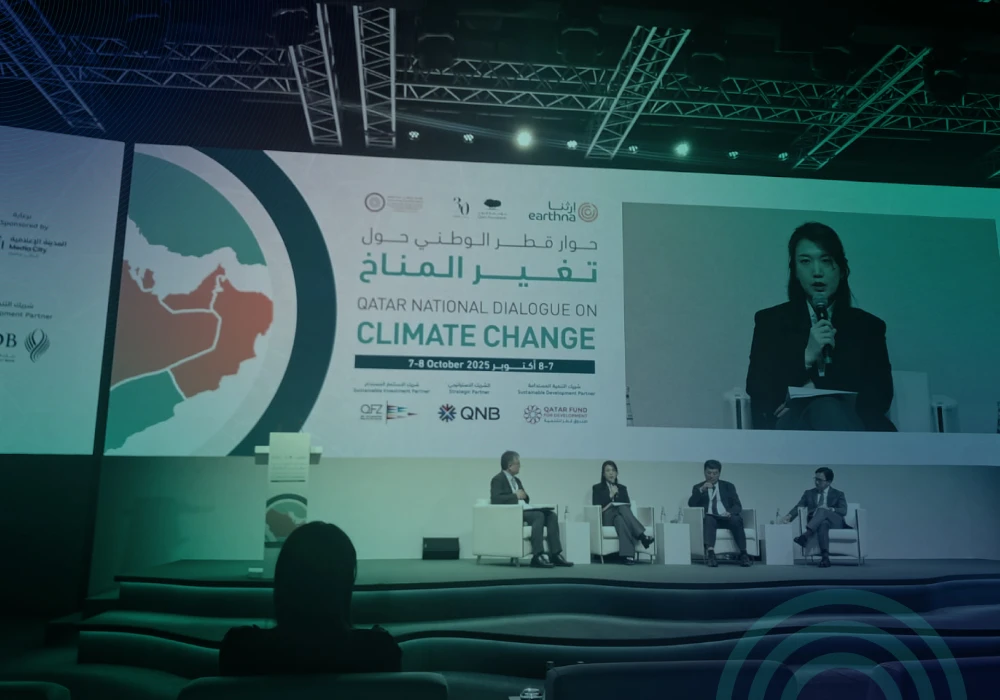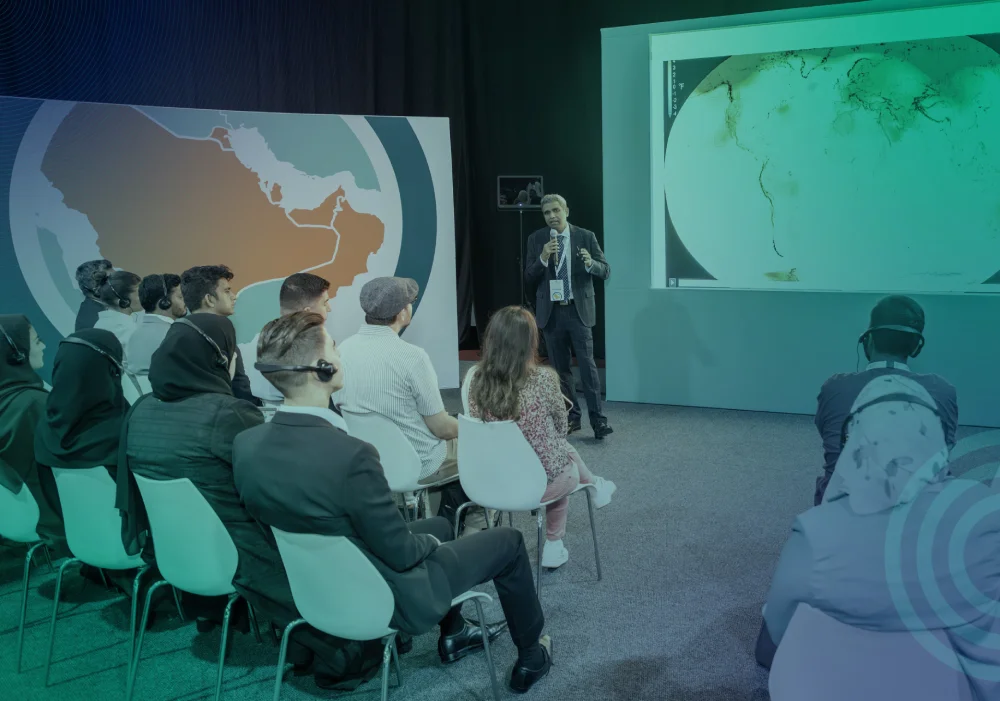As the official Carbon Markets Partner for #GWECCC2025, the Global Carbon Council (GCC) proudly participated in the Arabian Gulf’s premier government-led initiative dedicated to Water, Energy, and Climate Security & Sustainability. GCC’s presence underscored its leadership in advancing high-integrity carbon markets, supporting sustainable development, and catalyzing climate action across the Global South and MENA region.
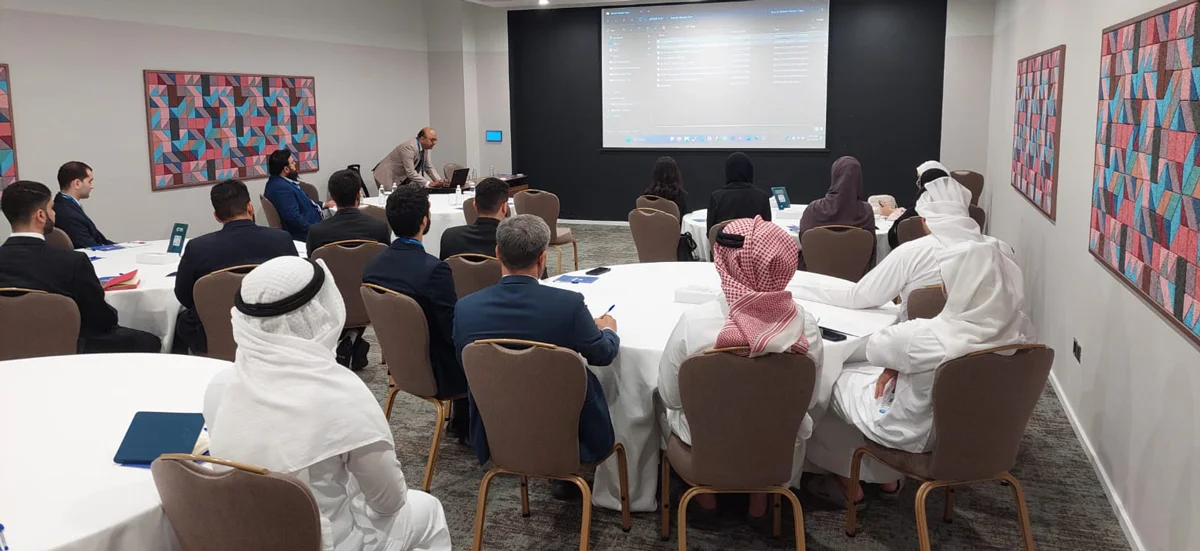
The GCC team at the masterclass workshop on 11 September 2025 included:
- Kishor Rajhansa – Chief Operating Officer
- Amit Thusu – Sr. Director, Climate Action
Masterclass Workshop: Carbon Market Infrastructure
The workshop focused on “Carbon Market Infrastructure: Catalyzing Circular Economy & Article 6.2 Operationalization,” combining conceptual frameworks, technical guidance, and real-life case studies. Participants included policymakers, industry leaders, and carbon market experts.
Setting the Stage: Climate Change, Paris Agreement, and MENA’s Urgency
The session opened with an overview of the Paris Agreement and the global climate scenario:
- The Agreement targets keeping temperature rise well below 2°C, striving for 1.5°C, with carbon neutrality by mid-century.
- Despite NDC pledges, global emissions remain high: estimated at 53.2 GtCO2e in 2025 and 51.6 GtCO2e in 2030.
- MENA countries have submitted ambitious NDCs, yet climate finance remains underrepresented—only 6.6% of global climate finance reaches the region, with total mobilized finance at $24.4 billion, far below the $495 billion required by 2030 for key countries.
This context highlighted the need for robust carbon markets, digital infrastructure, and international collaboration.
GCC 2.0: High-Integrity Carbon Markets for the Global South
GCC introduced participants to its latest framework, emphasizing:
- Project-based mechanisms for financing renewable energy, nature-based solutions, and other mitigation activities.
- E+ (Environmental) and S+ (Social) No-Harm certifications, ensuring projects do not negatively impact people or ecosystems while contributing to UN SDGs.
- Recognition and alignment with CORSIA, ICVCM, and compliance under Article 6 of the Paris Agreement.
- Digital carbon market infrastructure, enabling transparent, real-time monitoring, issuance, and trading of carbon credits.
Participants explored GCC’s portfolio:
- 1541 projects submitted across 45+ countries, projecting ~2 billion tonnes of emission reductions (2020–2032).
- Key regions: South & East Asia, MENA, South America & Caribbean, Africa, and Eastern Europe.
- Issuance status: 20 projects already issued ~12 million credits, with 14 under issuance process and 11.15 million credits in the pipeline.
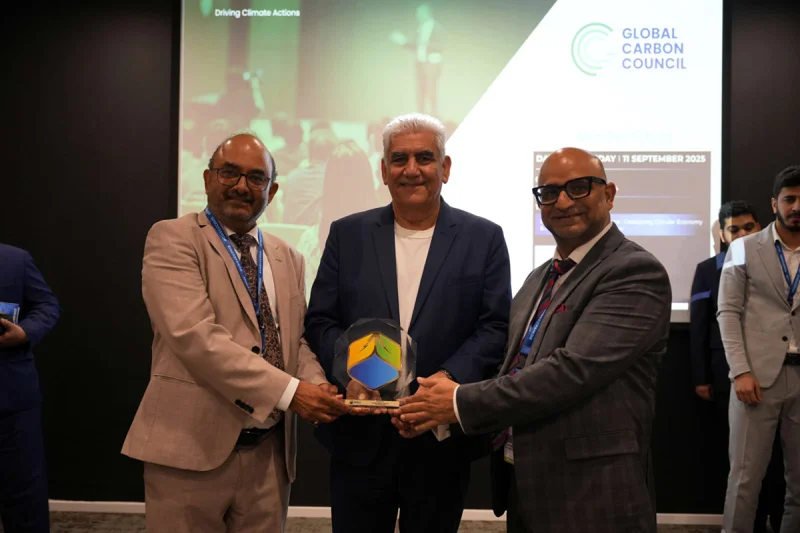
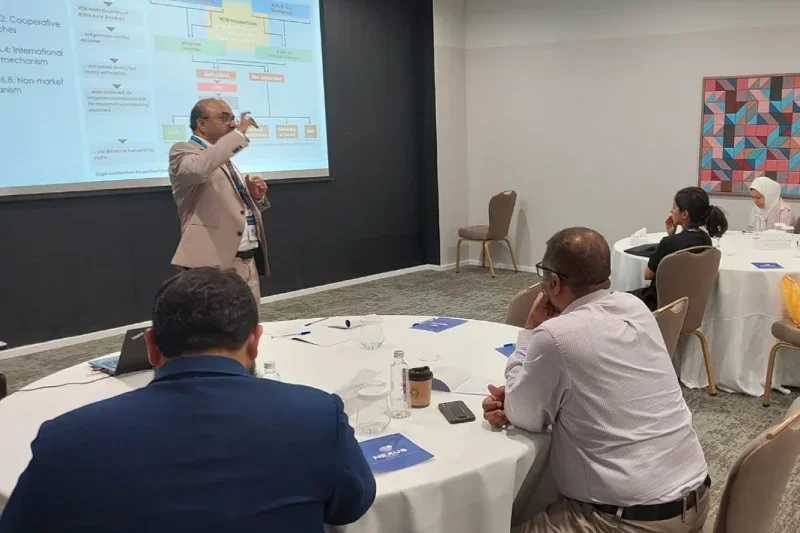
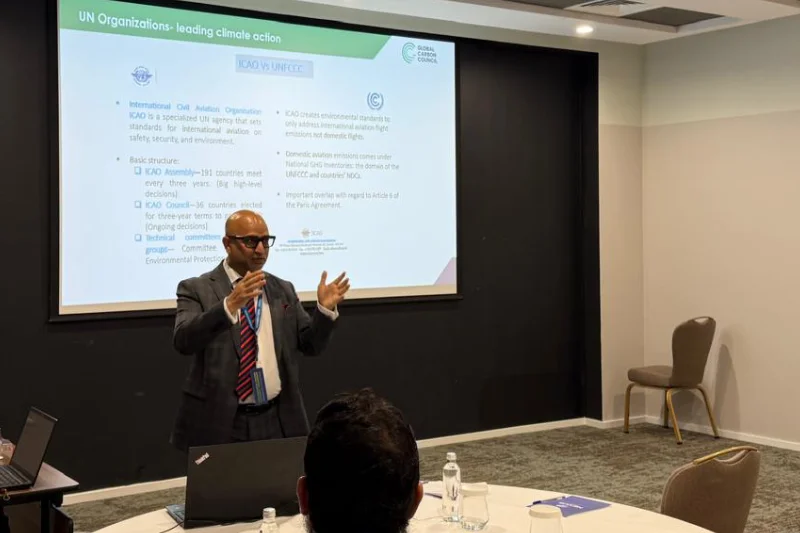
Project Design and Carbon Finance
GCC provided step-by-step guidance:
- Project identification, development, and submission, ensuring compliance with GCC methodologies.
- Demonstrating additionality via legal requirement tests, CDM-aligned approaches, and methodology-specific tests (e.g., ACM0012).
- Case studies included:
- Dumat Al Jandal Wind Project, Saudi Arabia
- Solar PV Plant Project, UAE
- Bauer Wetland Energy Efficiency Project, Oman and more
These examples showed how projects can generate Approved Carbon Credits (ACCs), helping corporates and governments meet climate commitments efficiently.
Operationalizing Article 6.2
Article 6.2 offers cooperative approaches to achieve internationally transferred mitigation outcomes (ITMOs). GCC highlighted:
- Differences between CDM, Article 6.2, and 6.4 mechanisms, including corresponding adjustments.
- How countries can integrate GCC’s digital registry, enabling:
- Real-time tracking of ITMOs
- Streamlined credit issuance, transfers, and ownership management
- Secure payment processing aligned with national benefit-sharing frameworks
- Instant reporting for UNFCCC BTR submissions
GCC’s solution allows countries to own their registry portal, maintain governance, and link with international crediting programs, ensuring interoperability, transparency, and speed.
Risks, Strategic Insights, and Opportunities
Risks
- Credibility & greenwashing: GCC’s rigorous evaluation ensures high-integrity credits.
- Regulatory uncertainty: Evolving global regulations require adaptive frameworks.
- Supply-demand mismatch: GCC focuses on premium-quality credits to balance the market.
- Verification bottlenecks: Digital MRV and clear methodologies streamline issuance.
Strategic Opportunities
- Growing corporate net-zero commitments drive demand for verified offsets.
- Premium pricing for projects with co-benefits (biodiversity, social impact).
- Digital MRV adoption improves scalability and reduces verification costs.
- Emerging project types: blue carbon, green hydrogen, soil carbon, CCS, and nature-based solutions.
- Integration into compliance markets under Article 6.2 enhances regional participation and credibility.
GCC’s Vision: Catalyzing Climate Action
Through initiatives like #GWECCC2025, GCC is bridging knowledge gaps, strengthening market credibility, and unlocking sustainable finance. By combining:
- Robust methodologies,
- Advanced digital infrastructure, and
- High-integrity carbon credits,
GCC empowers project developers, governments, and corporates to catalyze a low-carbon transition, especially in underrepresented regions.
The event reinforced GCC’s role as a trusted partner in carbon markets, advancing sustainable development, circular economy initiatives, and climate mitigation, shaping the future of global climate action.
